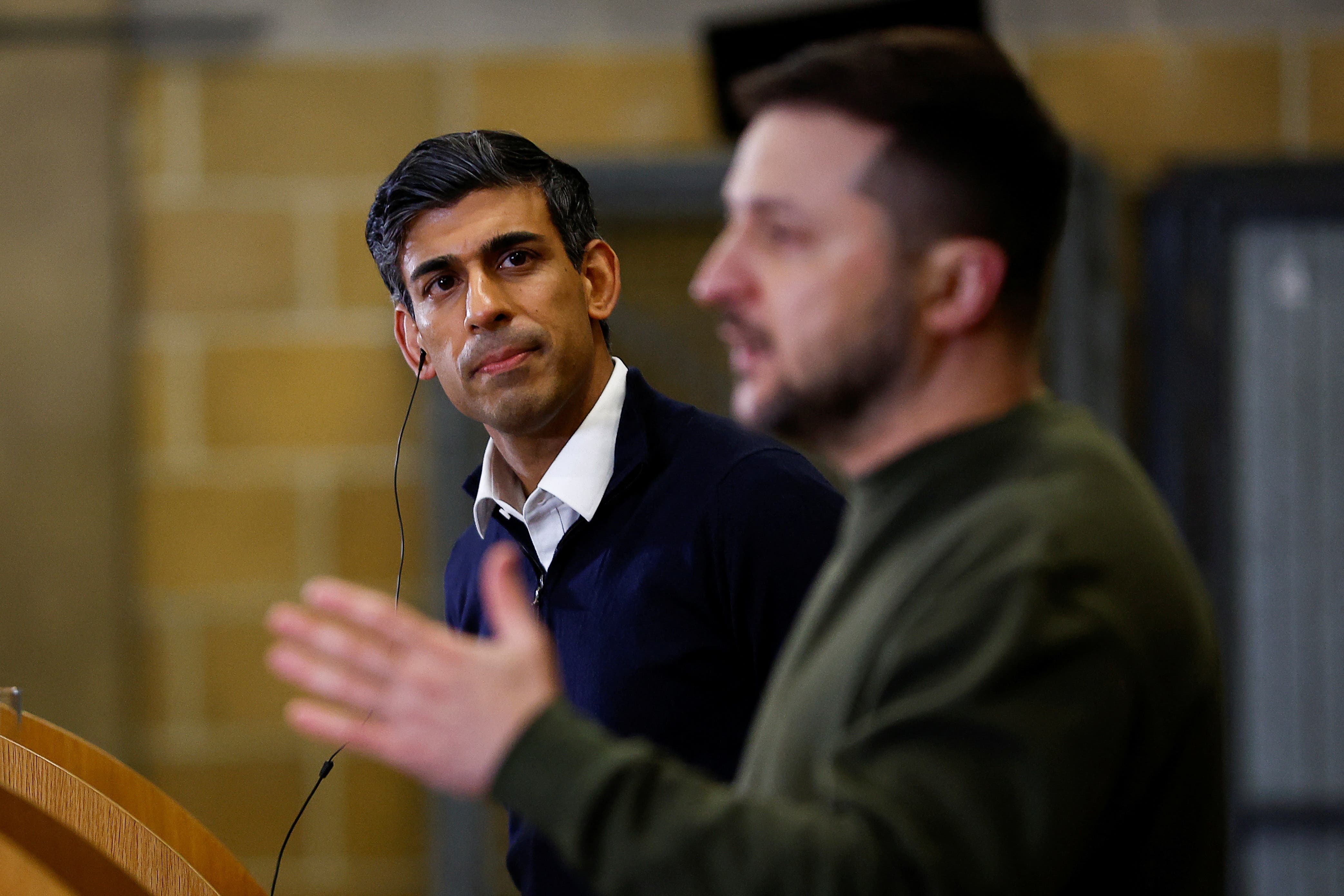We can learn a lot about Rishi Sunak from his two surprises this week
The prime minister set the agenda by reshuffling his team and by springing President Zelensky on us, writes John Rentoul


After a period in which Rishi Sunak struggled to get ahead of rolling news stories about Nadhim Zahawi’s tax affairs and Dominic Raab’s exacting dispatch of ministerial business, the prime minister took back control of the headlines this week.
First, he surprised everyone – including the politicians involved – on Tuesday by restructuring departments and reshuffling the ministers running them. The media verdict was that it was all a bit pointless, but that it nevertheless deserved extensive coverage – especially the sting-in-the-tail appointment of Lee Anderson as deputy Conservative Party chair.
Then on Wednesday, at 8.20am, Westminster was given three hours’ notice of the arrival of Volodymyr Zelensky, the president of Ukraine. There was a photocall in Downing Street, a session of Prime Minister’s Questions devoted to cross-party support for the Ukrainian war effort, and a plea for fighter jets from President Zelensky himself in Westminster Hall.
This last was arranged in such haste that there was no seating and minimal protocol. As such, the president greeted the prime minister when he came down the steps after his speech, and then worked his way to the right, along the shadow cabinet, to the chagrin of the actual cabinet who were arrayed to the left (Theresa May and Boris Johnson managed to position themselves on the corner where Zelensky made his way out).
This time the coverage was more favourable, with the media overwhelmingly in favour of giving the Ukrainians whatever equipment they asked for and only criticising Sunak for not giving it to them quickly enough.
Whoever was in charge of No 10’s media grid could put this week down as a job well done. It even ended on Thursday with the prime minister and his wife meeting babies at a family hub in Cornwall. Sunak looked natural and unaffected, including when holding a baby at one point, even if the policy he was advertising was a laborious reinvention of Sure Start centres (which his Tory predecessors abolished).
This week was a good case study in relations between government and journalists, showing how the power of government can be used to set the news agenda. Even the most negative coverage – the reaction of the liberal press to the promotion to a party role of someone who believes in the death penalty (on which government policy will not change) – served a purpose for Sunak, in emphasising his connection to working-class authoritarianism.
The restructuring of departments and the reshuffle of ministers may well not be worth the disruption and distraction they involved, but no one actually disagrees with separate energy and science ministries, or with abolishing the unnecessary Department for International Trade – and it meant that political journalists weren’t writing about the deputy prime minister’s microaggressions.
As for President Zelensky, I become nervous when the governing and opposition parties try to outdo each other on foreign policy, as when Iain Duncan Smith chided Tony Blair for not taking a hawkish enough line on Iraq. But for domestic political purposes, Sunak’s outbidding of his internal opposition, in the shape of Boris Johnson, will have served him well enough.
Foreign policy is rarely decisive in British electoral politics. Everyone agrees that we should support Ukraine, but already there is an undercurrent in focus groups of swing voters raising questions about whether money spent “over there” might be better spent here.
It may be that politics is in a holding pattern until Sunak can start to claim progress on the things that matter to voters: the economy, the NHS, and small boats. In which case, the prime minister needs a lot of subjects that will keep journalists occupied and cannot be subsumed under the all-purpose, all-destroying label of “sleaze”.
However, apart from the Anderson appointment – which could easily backfire – there was nothing creative about this week’s surprises. A reshuffle and a visit by a rock-star war hero are all very well, but Sunak needs to come up with some unexpected actions and announcements that put him on the side of people struggling with the cost of living. Perhaps he is saving those for next week.



Join our commenting forum
Join thought-provoking conversations, follow other Independent readers and see their replies
Comments